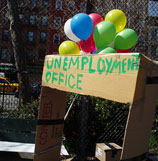Yesterday, four senators introduced legislation to make cell phone early termination fees be actually related to the cost of the phone. [More]
congress

Congress Investigates Airline Fees In Search Of Tax Revenue
Congress is concerned about the new fees that airlines seem to enjoy piling on their passengers. But not out of any sense of concern for consumers’ wallets. The problem is the lost tax revenue that airports are missing out on when airlines increase their prices through the use of fees instead of by raising fares.
Health Care Reform Bill Passes House – What's In It?
The House version of the health care reform bill passed the House on Saturday night. Now it needs to be merged with some sort fo Senate version of the bill and signed by the President to become law. So how does this reform bill actually affect consumers?

The Consumer Financial Protection Agency And You
Legislation to create a Consumer Financial Protection Agency (CFPA) is making its way through Congress. Interested parties have spoken out (“It sucks!” “It’s awesome!“). Now the White House wants to know what you think.

Senate Protects Employee Rights With Forced Arbitration Ban
Yesterday, the Senate adopted an amendment that will prevent federal funding from going to any contractor that requires its employees to use mandatory binding arbitration, instead of court, for sexual assault and civil rights claims against the company.

13 More Weeks Of Unemployment Benefits For Some Americans
On Tuesday, the House voted to extend unemployment benefits for Americans who live in states where the unemployment rate is greater than 8.5 percent. 400,000 people were set to run out of benefits at the end of September, and will now continue to receive them until the end of the year if the bill passes.

Consumer Financial Protection Agency Gets Watered Down
There’s been so much resistance to the proposed Consumer Financial Protection Agency that Rep. Barney Frank, the chairman of the House Financial Services Committee, has proposed a less powerful version of the agency in an attempt to get it passed. Here’s what’s changed:

Congress Seeks To Move Up Credit Card Act Implementation To December 1st
Today, Reps. Barney Frank and Carolyn Maloney are going to request that the implementation date for the rest of the Credit Card Act‘s rules be moved to December 1st of this year instead of February 2010, after seeing companies “jacking up their rates and doing other things to their customers in advance of the effective date” all summer, reports Mary Pilon at The Wall Street Journal.

Chamber Of Commerce Attacks Proposed Consumer Financial Protection Agency
Maybe you forgot about the proposed Consumer Financial Protection Agency in all the health care sound and fury, but it’s still out there, and financial companies are still very much against it. Now the U.S. Chamber of Commerce is launching an ad campaign that shifts the focus from credit card companies to smaller businesses that they insist will be affected, although the scope of the proposed agency is still kind of unclear.

Senate $2 Billion Approves Cash For Clunkers Extension
The Senate has approved $2 billion in additional funding for the CARS or Cash for Clunkers program. Of course, the perennial buzzkills at Consumer Reports Cars had to find a downside to the program’s continuation.

Cash For Clunkers Restarted With $2 More Billion
Earlier today, the House approved an additional $2 billion for the Cash for Clunkers program. Don’t celebrate yet, though. Consumer Reports Cars warns that it’s best to wait a while before trying to trade in your inefficient car to make sure that the program stays in place, and that you really will get your rebate. (Photo: G Travels)

Houses Passes Strong Food Safety Reform
The House of Representatives just passed the bipartisan Food Safety Enhancement Act of 2009. If enacted, the legislation would strengthen the FDA, increase inspections of food facilities, and hopefully ensure that tragedies like the Peanut Corporation of America salmonella outbreak become a thing of the past.

Another Arbitration Firm Pulls Out Of Credit Card Arbitration
Just days after the National Arbitration Forum agreed to stop arbitrating consumer credit card disputes, the American Arbitration Association has decided to do the same. This is good, but passage of the Arbitration Fairness Act is still necessary.

Airline Passengers Bill Of Rights Lurches Down Congressional Runway
Tomorrow, a Senate committee will hold a hearing on legislation that grants passengers the right to deplane if their plane is delayed on the runway for more than 3 hours. The legislation will also require that airlines provide water, food, and bathroom facilities during delays. If passed, it will be ignored by Delta.
../../../..//2009/07/15/if-youre-looking-for-a-1/
If you’re looking for a good read tonight, try curling up with a cup of herbal tea, some Nilla Wafers, and the PDF of the House Health Reform bill. (warning: opens extremely large PDF) If 1,018 pages is too much reading for tonight, you can look over this one-page PDF on the public insurance option included in the bill, or read first impressions from Consumers Union and the Washington Post’s Ezra Klein. [Consumer Reports Health]

Banks Consider Running TV Spots Against Proposed Consumer Financial Protection Agency
Remember Harry and Louise? I don’t, but apparently they were a fictional couple in an early-90s TV commercial, produced by the insurance industry to help sway opinion against the Clinton health plan. Now banks and other financial companies may be pooling resources to create a new “Harry and Louise” style ad to convince Americans that Obama’s proposed agency to monitor abusive financial practices will limit choice and ruin lives.

U.S. Balks At Prospect Of Imported Chinese Chickens
China is itching to sell their processed chickens directly to the U.S. market, an idea that doesn’t exactly thrill our regulators or representatives. Congress banned the import of processed Chinese chickens in 2007, ruffling Beijing’s feathers to the point where they’re now considering a retaliatory ban on U.S. chickens. Since we’re in a recession and Congress doesn’t want domestic chicken exporters to lose over a half-billion dollars next year, they may let the Chinese chickens come here to roost.



